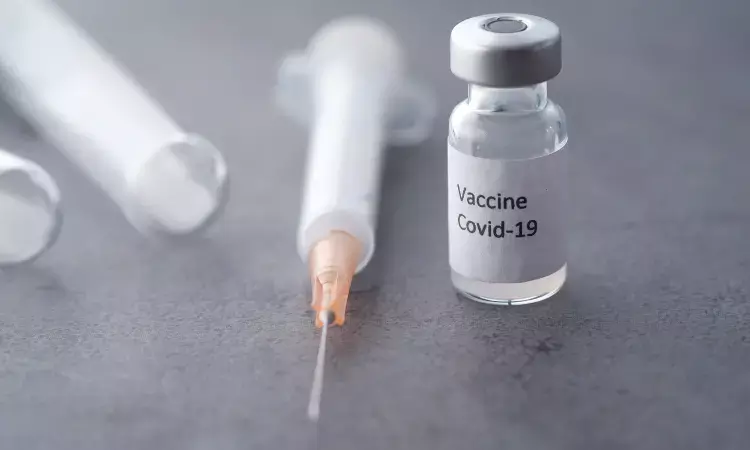- Home
- Medical news & Guidelines
- Anesthesiology
- Cardiology and CTVS
- Critical Care
- Dentistry
- Dermatology
- Diabetes and Endocrinology
- ENT
- Gastroenterology
- Medicine
- Nephrology
- Neurology
- Obstretics-Gynaecology
- Oncology
- Ophthalmology
- Orthopaedics
- Pediatrics-Neonatology
- Psychiatry
- Pulmonology
- Radiology
- Surgery
- Urology
- Laboratory Medicine
- Diet
- Nursing
- Paramedical
- Physiotherapy
- Health news
- Fact Check
- Bone Health Fact Check
- Brain Health Fact Check
- Cancer Related Fact Check
- Child Care Fact Check
- Dental and oral health fact check
- Diabetes and metabolic health fact check
- Diet and Nutrition Fact Check
- Eye and ENT Care Fact Check
- Fitness fact check
- Gut health fact check
- Heart health fact check
- Kidney health fact check
- Medical education fact check
- Men's health fact check
- Respiratory fact check
- Skin and hair care fact check
- Vaccine and Immunization fact check
- Women's health fact check
- AYUSH
- State News
- Andaman and Nicobar Islands
- Andhra Pradesh
- Arunachal Pradesh
- Assam
- Bihar
- Chandigarh
- Chattisgarh
- Dadra and Nagar Haveli
- Daman and Diu
- Delhi
- Goa
- Gujarat
- Haryana
- Himachal Pradesh
- Jammu & Kashmir
- Jharkhand
- Karnataka
- Kerala
- Ladakh
- Lakshadweep
- Madhya Pradesh
- Maharashtra
- Manipur
- Meghalaya
- Mizoram
- Nagaland
- Odisha
- Puducherry
- Punjab
- Rajasthan
- Sikkim
- Tamil Nadu
- Telangana
- Tripura
- Uttar Pradesh
- Uttrakhand
- West Bengal
- Medical Education
- Industry
No impact of COVID-19 vaccine on blood sugar control in diabetics, study finds

Austria: A recent study stated that COVID-19 vaccination does not significantly change blood sugar (glycemic) control in patients with type 2 diabetes (T2D) and type 1 diabetes (T1D). However, a worsening of glycemia was observed in T1D patients in conjunction with vaccine side effects.
Results, published in the journal Diabetes Care, are based on a substudy of the Immune Response to COVID-19 Vaccination in People with Diabetes Mellitus (COVAC-DM) -- multicenter, prospective study.
Diabetes patients are generally considered a high-risk population in the scenario of the coronavirus disease 2019 (COVID-19) pandemic and hence are prioritized in the COVID-19 vaccine policy. Felix Aberer, Interdisciplinary Metabolic Medicine Trials Unit, Medical University of Graz, Graz, Austria, and colleagues aimed to investigate the short-term effects of COVID-19 vaccination on the time spent in different glycemic ranges -- assessed by continuous glucose monitoring (CGM) in patients with T1D and T2D.
The study included 74 diabetic patients who had sufficient CGM data available during their first COVID-19 vaccination. Out of these patients, 58 participants had T1D (mean age, 39.5±14.1 years; mean glycated hemoglobin [HbA1c] 57±12 mol/mol), and 16 had T2D (mean age, 60.6±6.2 years; mean HbA1c, 63±11 mmol/mol).
Most of the patients had received an mRNA-based vaccine (87% BioNTech Pfizer and 6% Moderna vs 7% AstraZeneca). Data from CGM were assessed from 2 days prior until 3 days after the first vaccination dose for time spent in different glycemic ranges.
The researchers also created a score that assessed the time spent in glycemic ranges in relation to side effects such as body ache, fatigue, headache, and any injection site reaction, as well as an elevated body temperature of >37°C.
Following were the study's key findings:
· No significant differences were found in patients with T1D or those with T2D regarding the time in range (TIR) (70-180 mg/dL) from 2 days before receiving the vaccine until 3 days afterward.
· The time below range (TBR) (˂70 mg/dL; T1D; T2D) and the time above range (TAR) (˃180 mg/dL; T1D; T2D) did not change around the time of the COVID-19 vaccination.
· Patients with T1D had significantly less TIR on days they experienced side effects from the vaccine, compared with days they did not experience side effects.
· Side effects had no significant influence on TBR in patients with T1D.
· For patients with T2D, the side effect score had no effect on TIR, TAR, or TBR.
· Glycemic variability, measured as a coefficient of variation, was not significantly different regarding side effect score for either T1D or T2D.
"Our findings showed that the COVID-19 vaccination did not change glycemic control in diabetic people," wrote the authors. "A deterioration of glycemia was however observed in people with type 1 diabetes on days on which side effects were present."
There is a need for further investigation of this observation in larger studies but it can be considered when health care professionals inform their patients about potential glycemic aberrations in response to COVID-19 immunization, they concluded.
Reference:
Felix Aberer, Othmar Moser, Faisal Aziz, Caren Sourij, Haris Ziko, Jacqueline Lenz, Farah Abbas, Anna M. Obermayer, Harald Kojzar, Peter N. Pferschy, Alexander Müller, Christina Unteregger, Marlies Leitner, Tamara Banfic, Max L. Eckstein, Nadine Wachsmuth, Susanne Kaser, Julia K. Mader, Norbert J. Tripolt, Harald Sourij; for the COVAC-DM Study Group, Impact of COVID-19 Vaccination on Glycemia in Individuals With Type 1 and Type 2 Diabetes: Substudy of the COVAC-DM Study. Diabetes Care 2021; dc211563. https://doi.org/10.2337/dc21-1563
Dr Kamal Kant Kohli-MBBS, DTCD- a chest specialist with more than 30 years of practice and a flair for writing clinical articles, Dr Kamal Kant Kohli joined Medical Dialogues as a Chief Editor of Medical News. Besides writing articles, as an editor, he proofreads and verifies all the medical content published on Medical Dialogues including those coming from journals, studies,medical conferences,guidelines etc. Email: drkohli@medicaldialogues.in. Contact no. 011-43720751


